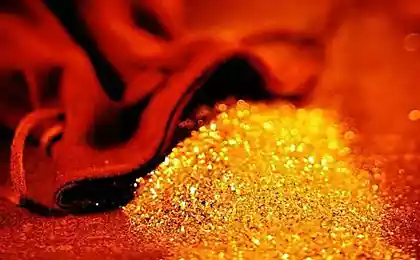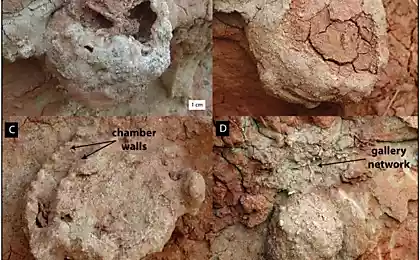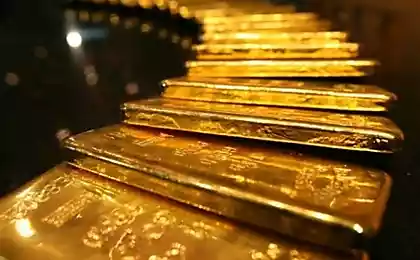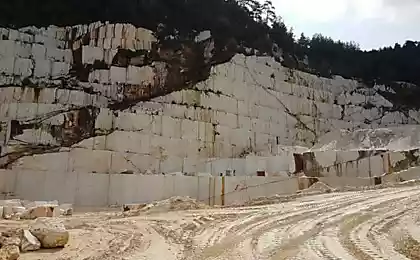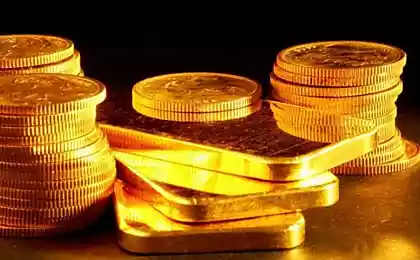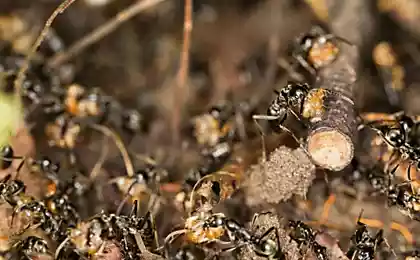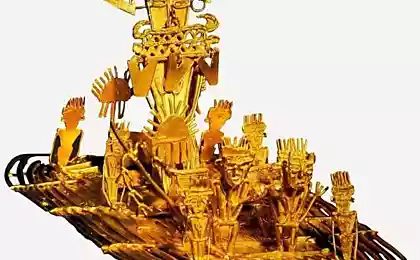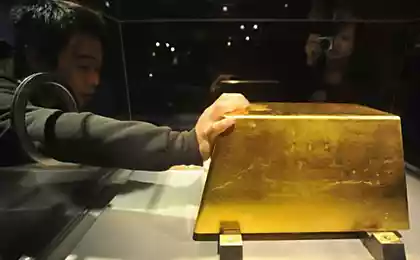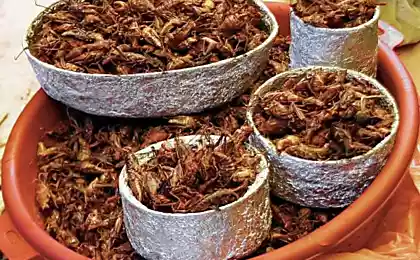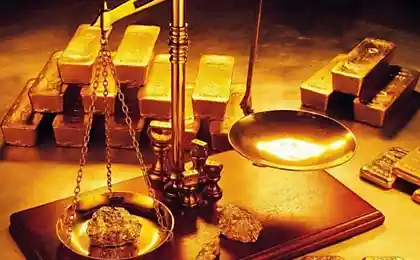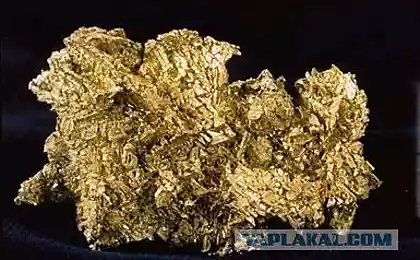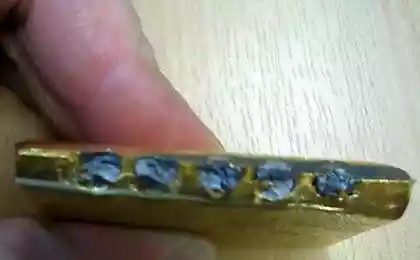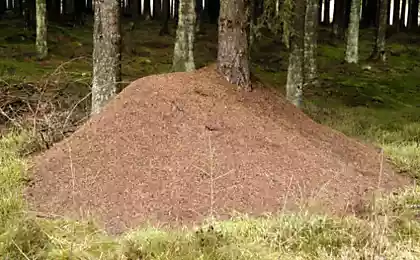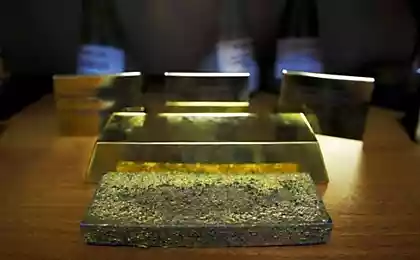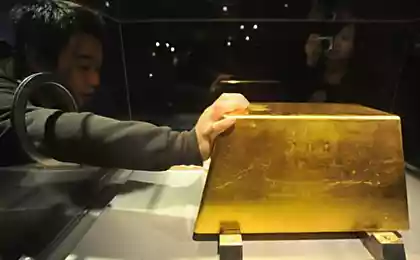549
Termites "mine" and hoard gold
Want to know what it's like to literally sit on a gold mine? In this case, according to the results of a new study, You can take a few termites.
Recent experiments in Western Australia have shown that termites "mine" and stockpile gold while collecting soil material for their nests.
State Association scientific and applied research (Australia), entomologist Aaron Stewart and his colleagues took samples from several termite nests and compared them with samples taken nearby of the soil (samples were taken from different depths).
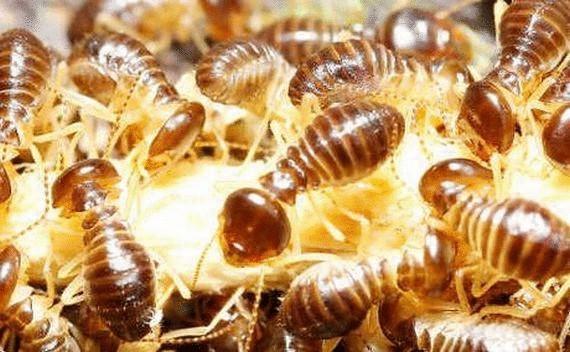
Using the mass spectrometer (a device that determines the chemical composition of the molecules), they found that in the nests of termites, located near deposits of gold, precious metal content was more.
Robert Matthews, Professor Emeritus of entomology from the University of Georgia, said in an email: "the Fact that the colonies of social insects can selectively accumulate metals from the environment, was already known".
Even been suggested that the nests of ants and termites can profitably explore in the search of clusters of precious metals.
Search gold deposits is a laborious process, since deposits are usually located at a depth of several meters. However the insects can actually act as indicators of such treasures.
Drilling is a very expensive venture. If the termites can really help to narrow the radius of investigation, it means that companies have the opportunity to save considerable sums on exploration work.
In a related study, Stewart and his colleagues intended to find out whether termites accumulate in the bodies of metals, as do many animals, is another possible method of search of deposits of minerals.
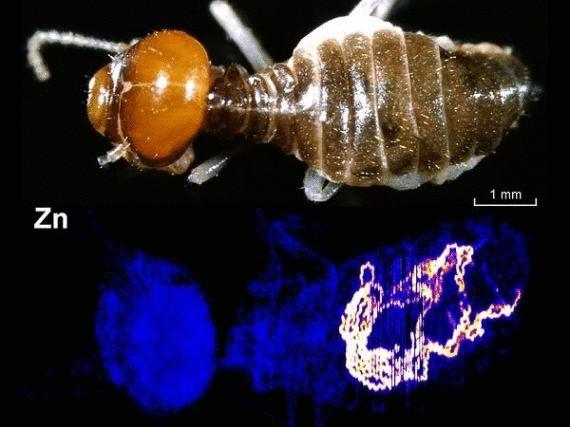
As well as mammals accumulate calcium to strengthen bones, some insects accumulate zinc and magnesium to strengthen their exoskeleton, in particular, of the jaw.
At the same time, insects are also very well distinguish metals that don't need their organisms or are toxic. For example, they get rid of them or during molting, or in the form of tiny stones similar to kidney stones in humans.
When Stewart began to study the excretory systems of insects, he made an amazing discovery. Turns out some of the organs of the excretory systems of termites contain various amounts of metals, hinting at unknown processes going on inside organisms. This is important because this implies that the waste of termites indicate the metal deposits underground.
Source: /users/104
Recent experiments in Western Australia have shown that termites "mine" and stockpile gold while collecting soil material for their nests.
State Association scientific and applied research (Australia), entomologist Aaron Stewart and his colleagues took samples from several termite nests and compared them with samples taken nearby of the soil (samples were taken from different depths).

Using the mass spectrometer (a device that determines the chemical composition of the molecules), they found that in the nests of termites, located near deposits of gold, precious metal content was more.
Robert Matthews, Professor Emeritus of entomology from the University of Georgia, said in an email: "the Fact that the colonies of social insects can selectively accumulate metals from the environment, was already known".
Even been suggested that the nests of ants and termites can profitably explore in the search of clusters of precious metals.
Search gold deposits is a laborious process, since deposits are usually located at a depth of several meters. However the insects can actually act as indicators of such treasures.
Drilling is a very expensive venture. If the termites can really help to narrow the radius of investigation, it means that companies have the opportunity to save considerable sums on exploration work.
In a related study, Stewart and his colleagues intended to find out whether termites accumulate in the bodies of metals, as do many animals, is another possible method of search of deposits of minerals.

As well as mammals accumulate calcium to strengthen bones, some insects accumulate zinc and magnesium to strengthen their exoskeleton, in particular, of the jaw.
At the same time, insects are also very well distinguish metals that don't need their organisms or are toxic. For example, they get rid of them or during molting, or in the form of tiny stones similar to kidney stones in humans.
When Stewart began to study the excretory systems of insects, he made an amazing discovery. Turns out some of the organs of the excretory systems of termites contain various amounts of metals, hinting at unknown processes going on inside organisms. This is important because this implies that the waste of termites indicate the metal deposits underground.
Source: /users/104
